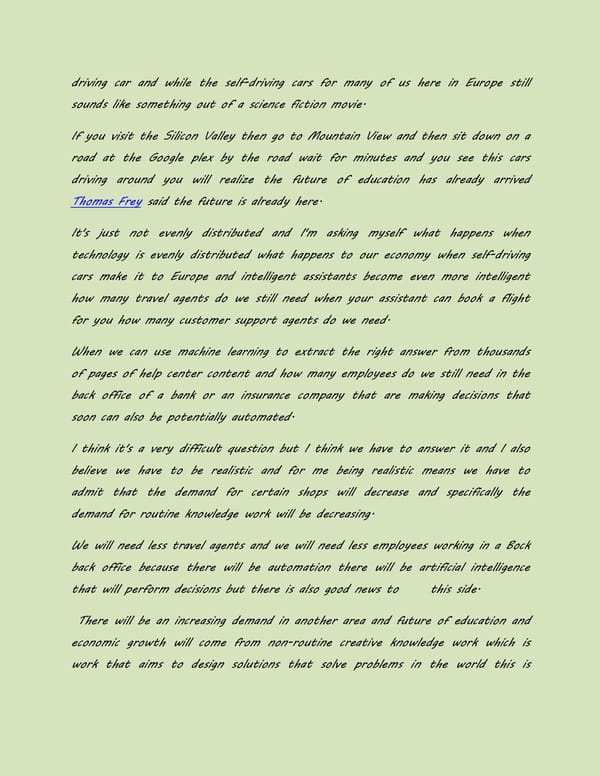driving car and while the self-driving cars for many of us here in Europe still sounds like something out of a science fiction movie. If you visit the Silicon Valley then go to Mountain View and then sit down on a road at the Google plex by the road wait for minutes and you see this cars driving around you will realize the future of education has already arrived Thomas Frey said the future is already here. It's just not evenly distributed and I'm asking myself what happens when technology is evenly distributed what happens to our economy when self-driving cars make it to Europe and intelligent assistants become even more intelligent how many travel agents do we still need when your assistant can book a flight for you how many customer support agents do we need. When we can use machine learning to extract the right answer from thousands of pages of help center content and how many employees do we still need in the back office of a bank or an insurance company that are making decisions that soon can also be potentially automated. I think it's a very difficult question but I think we have to answer it and I also believe we have to be realistic and for me being realistic means we have to admit that the demand for certain shops will decrease and specifically the demand for routine knowledge work will be decreasing. We will need less travel agents and we will need less employees working in a Bock back office because there will be automation there will be artificial intelligence that will perform decisions but there is also good news to this side. There will be an increasing demand in another area and future of education and economic growth will come from non-routine creative knowledge work which is work that aims to design solutions that solve problems in the world this is
 Artificial intelligence & the future of education systems Page 3 Page 5
Artificial intelligence & the future of education systems Page 3 Page 5